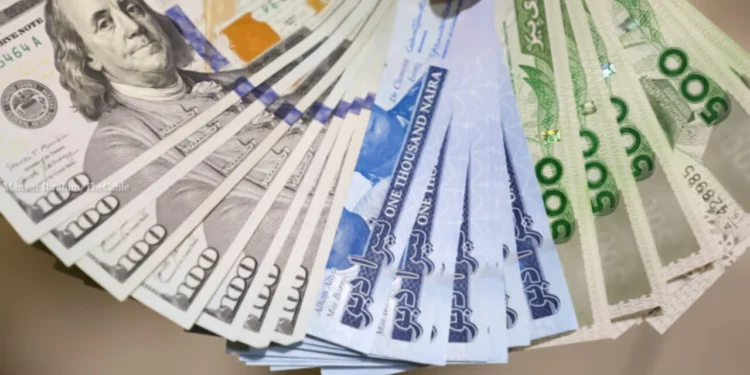In a mid-week trading session, the Naira faced a decline against the U.S. dollar, hitting N881.88/$1, down from N814.60/$1 on Monday, as reported by official data from FMDQ. This depreciation continued on the black market, where the Naira fell to N1160/$1 on Tuesday from N1,115/$1 on Monday.
The persistent devaluation of the Naira has been attributed to short sellers who maintain their positions despite recent assurances from Mr. Yemi Cardoso, stating that the apex bank will implement new policies to ensure exchange rate stability. Cardoso emphasized the importance of clear, transparent, and harmonized rules governing market operations, with extensive consultations planned with banks and FX market operators before implementing any new requirements.
Simultaneously, the dollar index and dollar index futures experienced a slight decline during the London trading session after reaching three-month lows at the beginning of the week. This downturn is linked to growing speculations that the U.S. Federal Reserve will halt interest rate hikes and may even initiate cuts in 2024.
The Federal Reserve has maintained its benchmark interest rate at a 22-year high of 5.25% to 5.5% since July, following 11 consecutive rate increases starting from March 2022. Analysts expect the Fed to maintain this rate at its December meeting, supported by signs of a steady economic growth in the largest economy.
Chicago Fed President Austan Goolsbee’s recent comments expressing concerns about keeping rates high for too long have contributed to the dovish expectations. Financial markets are eagerly awaiting economic signals to determine when the Fed might start easing its policies.
In addition to the Purchasing Managers Index (PMI) data and third-quarter GDP revision, the U.S. is closely watching the November data for any indications about the Fed’s future decisions. The 10-year yield on U.S. government debt, inversely correlated with price, dropped by 0.04% to 4.35% on Tuesday, reflecting sensitivity to interest rate expectations.
The dollar index, down 3.6% since the beginning of November, is poised for its worst monthly performance in a year. The outcome remains uncertain, with potential scenarios depending on economic signals and the Fed’s stance, leaving the global financial market in anticipation of further developments.










